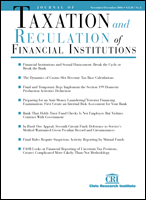Protecting a Lender’s Standing to Foreclose: When is a Note Not a “Note”?
Author: John Vassalotti.; Eric M. Hurwitz.; Andrew K. Stutzman.
Source: Volume 26, Number 05, May/June 2013 , pp.45-51(7)

< previous article |next article > |return to table of contents
Abstract:
Mortgage loan borrowers have mounted many novel arguments in recent years in their efforts to avoid foreclosure on their properties, and these arguments frequently attack the standing of the lender or servicer of the loan to foreclose. One frequent argument is that the loan in question is not a negotiable instrument under the Uniform Commercial Code (UCC) because it imposes a nonmonetary obligation on the borrower to notify the lender if a prepayment of principal is made—a common provision in many mortgage loan notes. Therefore, the argument goes, the lender seeking to foreclose is not a “note holder” under the UCC and lacks standing to foreclose if its standing is based solely on note holder status. This article surveys recent cases that have considered and rejected this argument, evaluates other standard note provisions that may be susceptible to such an attack, and recommends steps lenders can take to head off challenges to standing in the first place.Keywords: non-monetary obligations; prepayment notices; UCC Article 3; HSBC v Gouda; negotiable instrument; automatic stay in bankruptcy
Affiliations:
1: Stradley Ronon Stevens & Young, LLP; 2: Stradley Ronon Stevens & Young, LLP; 3: Stradley Ronon Stevens & Young, LLP.